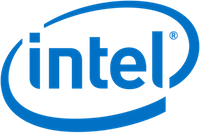Client - Intel
BSSEC delivered energy audits to BS EN 16247 in compliance with ESOS legislation, in both the UK and Ireland, for Intel manufacturing sites.
Client Requirements
The objective of each audit was to understand energy used at the site, the installations present and the patterns of occupation to identify areas where energy consumption could be reduced, or trends of use altered, to provide appropriate energy savings, whilst also ensuring compliance with the UK Government mandatory ESOS Scheme (response to Article 8 of the European Commission’s Energy Efficiency Directive).
Data centre sites, and associated buildings, often involve different functions, and therefore different usage levels. These were categorised into 3 scales of kWh usage process. All functions were accounted for in the audit process. This included; the data centres themselves, manufacturing processes, research & development and offices.
Methodology
BSSEC’s site audit duties covered the following areas of significant energy use:
- Process
- Heating and hot water
- Lighting
- Small power / IT
- Ventilation
- Cooling
- Catering
As part of an energy audit, BSSEC undertake an evaluation of energy use at each site including information request, preparation (energy data and site visit checklist and assessment), the site survey, analysis of the technical measures to be explored and a report and review of the audit.
Outcomes
It was found that most aspects of energy consumption are extremely well monitored and controlled and the site use specialist energy consultants to advise on energy use and saving opportunities. This report identifies opportunities that have not yet been fully implemented, and includes recommendations previously identified by other consultants or Intel itself.
The site audit identified a number of opportunities which are as follows:
- Metering, Monitoring and Targeting
- Implementation of Energy Policy
- Optimise ventilation levels/times
- Occupancy sensor control of lighting
- Occupancy sensor control of air conditioning
- Variable Speed Drives to Fixed Speed fans
- Daylight lighting controls
- LED lighting upgrade
- Installation of Solar PV
The opportunities generated by the audits of two Intel sites have the potential to significantly improve the energy efficiency of the sites and yield financial and carbon savings, with typical energy savings of 13%.
“We believe that climate change is a serious environmental, economic, and social challenge. We focus on reducing our own direct climate “footprint”—the emissions resulting from our own operations and our supply chain. Reducing our energy use is a key component of our overall climate change strategy.”
Intel Corporate Social Responsibility Report 2016







